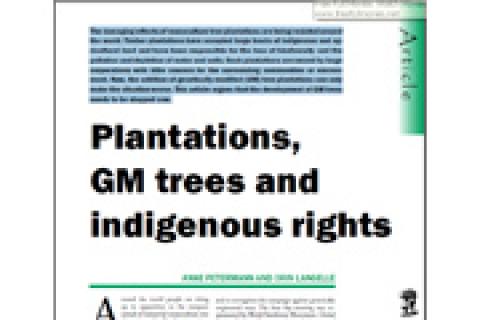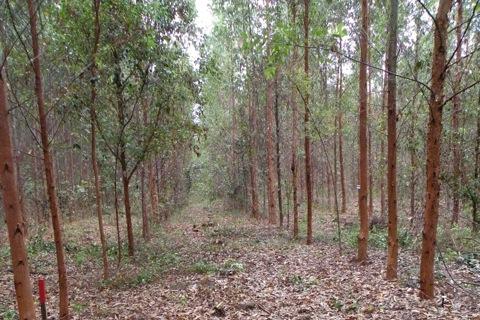The environment in West Kalimantan has changed radically over the past 25 years. Much of the forest that supported communities’ livelihoods has been cut down and the land allocated to companies that clear it to make way for oil palm plantations. Even forest traditionally set aside for future generations (hutan cadangan) is prey to “forest conversion”, since the government regards land left fallow under traditional cultivation systems as “neglected” or “critical”.
Other information
Oil palm plantations are expanding in South America: Colombia, Ecuador, Venezuela and now Peru have joined the commercial thrust. The companies find profitable opportunities at the expense of the invaluable Amazon forest and of the lives of peasants who are displaced from their lands where they obtain their means of livelihood.
The accelerated destruction of rainforest and indigenous woodland in Uganda, making way for palm oil and sugar production, follows an all too familiar pattern that has been seen in other parts of the world, especially South Asia.
Widely reported (in the local media) was the government release of five thousand hectares of protected woodlands from its statutory care to BIDCO, a palm-oil producing firm that originates in South Asia, in 2001. These forests, on the Ssese Islands in Lake Victoria were then removed in short order.
The Alert against the Green Desert Movement is a broad network of opposition to the expansion of large scale eucalyptus tree plantations in the region which covers the States of Minas Gerais, Espirito Santo, Bahia and Rio de Janeiro and Rio Grande do Sul. Its existence and struggles arose from the proven social and environmental impacts of these plantations, some of which presently enjoy FSC certification.
In 1999, the FACE Forestación del Ecuador S.A. programme, known as PROFAFOR, hired the Swiss certification firm SGS-Société Générale de Surveillance to assess the forestry management of 20,000 hectares of its monoculture tree plantations in the Ecuadorian Andes.
In South Africa, a thorough research carried out by John Blessing Karumbidza --“A Study of the Social and Economic Impacts of Industrial Tree Plantations in the KwaZulu-Natal Province of South Africa”, available at http://www.wrm.org.uy/countries/SouthAfrica/book.pdf -- has identified a host of damaging economic, social and environmental impacts of monoculture tree plantations affecting local communities, water resources and ecosystems.
About 9% of Swaziland is now under timber plantations (eucalyptus, pine and acacia). In December 2004 Wally Menne, a member of the South African Timberwatch Coalition made public his research: “Timber Plantations in Swaziland: An investigation into the environmental and social impacts of large-scale timber plantations in Swaziland” (available at http://www.wrm.org.uy/countries/Swaziland/Plantations.pdf ).
In 1987 legislation was adopted that implied the promotion – by means of tax exemptions and subsidies – of large-scale monoculture alien tree plantations (mainly eucalyptus and pine) for export. It is thus that the country up till then based on agriculture and stock raising, started to convert part of its fertile grasslands into “green deserts” which presently cover over 700,000 hectares.
By the Alert Against The Green Desert Movement/Brazil
The harshness of capital against life but Aracruz Celulose lost the FSC-certificate!
Paulo Henrique de Oliveira, a Tupinikim leader of Caieiras Velhas and Coordinator of the Articulação de Povos e Organizações Indígenas do Nordeste, Minas Gerais e Espírito Santo - APOINME (Articulation of Indigenous People and Organizations from the Northeast, Minas Gerais and Espírito Santo), and Antônio Carvalho, a Guarani chief, travelled to Europe in April/May 2006, to publicise their struggle to demarcate Tupinikim and Guarani lands in Espírito Santo (see WRM Bulletins Nº 94, 96, 102, 103) .
The social and environmental impacts of monoculture eucalyptus plantations have been well documented in many countries. However, the gender dimension has usually been overlooked, thus hiding the differentiated impacts they have on women. The following quotes from a research carried out in Brazil on Aracruz Cellulose’ plantations and pulp mill operation are therefore very useful to shed some light on the issue and to encourage other people to look further into these less well-known impacts.


